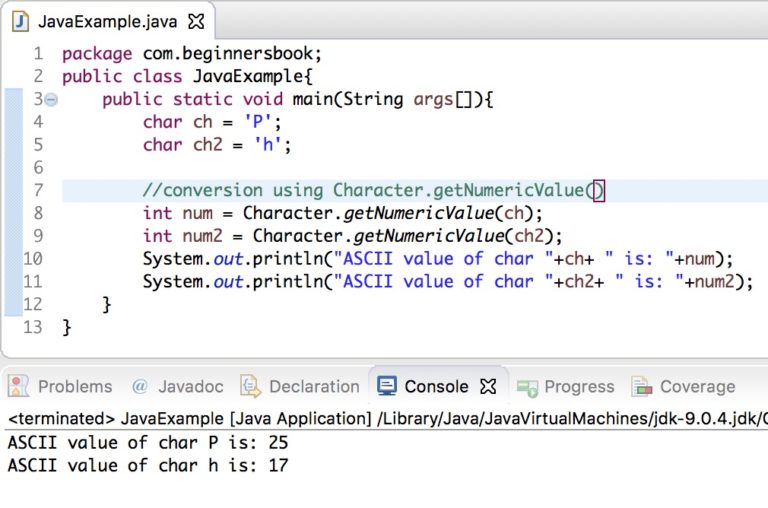For developers working with C#, understanding how to convert character values to integers is essential for various programming scenarios. Whether you're dealing with ASCII values, numerical representations, or simply looking to manipulate character data, mastering the technique of converting char to int can significantly enhance your coding capabilities. In this article, we will delve into the methods, intricacies, and practical applications of this conversion, ensuring that you have a solid grasp of the topic.
Converting char to int in C# is not just a straightforward process but also holds great importance in data processing and manipulation. From parsing user input to handling data types in algorithms, knowing how to accurately perform this conversion can save time and prevent errors. We will explore different methods of conversion, the significance of each approach, and provide examples that clarify how to implement them effectively in your programs.
Throughout this article, we will answer common questions and clarify the nuances of the conversion process. Whether you are a novice programmer or an experienced developer looking to refresh your knowledge, the insights provided here will be invaluable. So, let’s dive deep into the world of C# and uncover the secrets behind converting char to int!
What is the Basic Concept of Converting Char to Int in C#?
In C#, a character (char) is a data type that represents a single 16-bit Unicode character. When we talk about converting char to int, we are typically referring to obtaining the numeric representation of that character, which is often its ASCII or Unicode value. The conversion is straightforward, as characters can be implicitly converted to their integral types due to C#'s type compatibility. For example, the character 'A' has an ASCII value of 65, and when converted to an integer, it will yield this value.
Why Would You Need to Convert Char to Int?
Understanding why you might need to convert char to int can help clarify its importance in programming. Here are a few common scenarios:
- **Data Processing:** When working with user-generated input, converting characters to their integer values can facilitate calculations and comparisons.
- **Encoding and Decoding:** In applications involving encryption or compression, converting characters to their numerical values can be a critical step.
- **Sorting and Searching Algorithms:** Some algorithms require numerical values for processing data efficiently.
How to Convert Char to Int in C#?
There are multiple methods to convert char to int in C#. Let's explore the most common techniques:
1. Implicit Conversion
C# allows for implicit conversion of char to int. Here’s how you can do it:
char myChar = 'A'; int myInt = myChar; // Implicit conversion
In this example, the character 'A' is implicitly converted to its ASCII value, which is 65.
2. Using the Convert Class
The Convert class provides a method specifically for this purpose:
char myChar = 'B'; int myInt = Convert.ToInt32(myChar); // Using Convert class
This method is also safe and straightforward, ensuring that you get the correct numeric value.
3. Casting
You can also use explicit casting if you prefer:
char myChar = 'C'; int myInt = (int)myChar; // Explicit casting
This approach achieves the same result but requires explicit conversion syntax.
What Are the Potential Issues When Converting Char to Int?
While converting char to int is generally safe in C#, there are a few potential pitfalls to be aware of:
- **Out of Range Values:** Ensure that the character you are converting is valid and within the expected range.
- **Non-Printable Characters:** Some characters may yield unexpected integer values that are not displayable.
- **Culture-Specific Characters:** When working with internationalization, be mindful of how characters are represented across different cultures.
Can You Convert Int Back to Char?
Absolutely! The conversion from int back to char is just as important. You can use the following methods:
int myInt = 68; char myChar = (char)myInt; // Converting int back to char
This code converts the integer 68 back to the character 'D'.
What Are Some Practical Applications of Converting Char to Int?
Converting char to int has various practical applications in programming, such as:
- **Creating Custom Sorting Algorithms:** You can create algorithms that sort characters based on their integer values.
- **Data Validation:** Validate user inputs by converting characters to integers and checking against expected ranges.
- **Cryptography:** Use character-to-integer conversions as part of encryption and decryption algorithms.
Conclusion: Mastering the Conversion Process
In conclusion, converting char to int in C# is a fundamental skill for developers. By understanding the various methods of conversion, potential pitfalls, and practical applications, you are better equipped to handle character data in your programming projects. Whether you are parsing input, manipulating data, or implementing algorithms, the ability to convert char to int will enhance your coding proficiency. Embrace this knowledge and apply it to your next C# project!
Article Recommendations
- Timothy Bass Murder
- Pax Thien Jolie Pitt Wikipedia
- Woo Lotti Video
- European Wax Center 360 Lexington Ave New York Ny 10017
- Glen Powell Top Gun
- Sean Preston Federline 2024
- Benny Blanco Height Inches
- Abel Tesfaye Selena Gomez
- Michael Rainey Gf
- Bela Rajput
Also Read


![3 ways to convert CHAR to INT in Java [Practical Examples] GoLinuxCloud](https://i2.wp.com/www.golinuxcloud.com/wp-content/uploads/java_char_to_int-1-1.jpg)